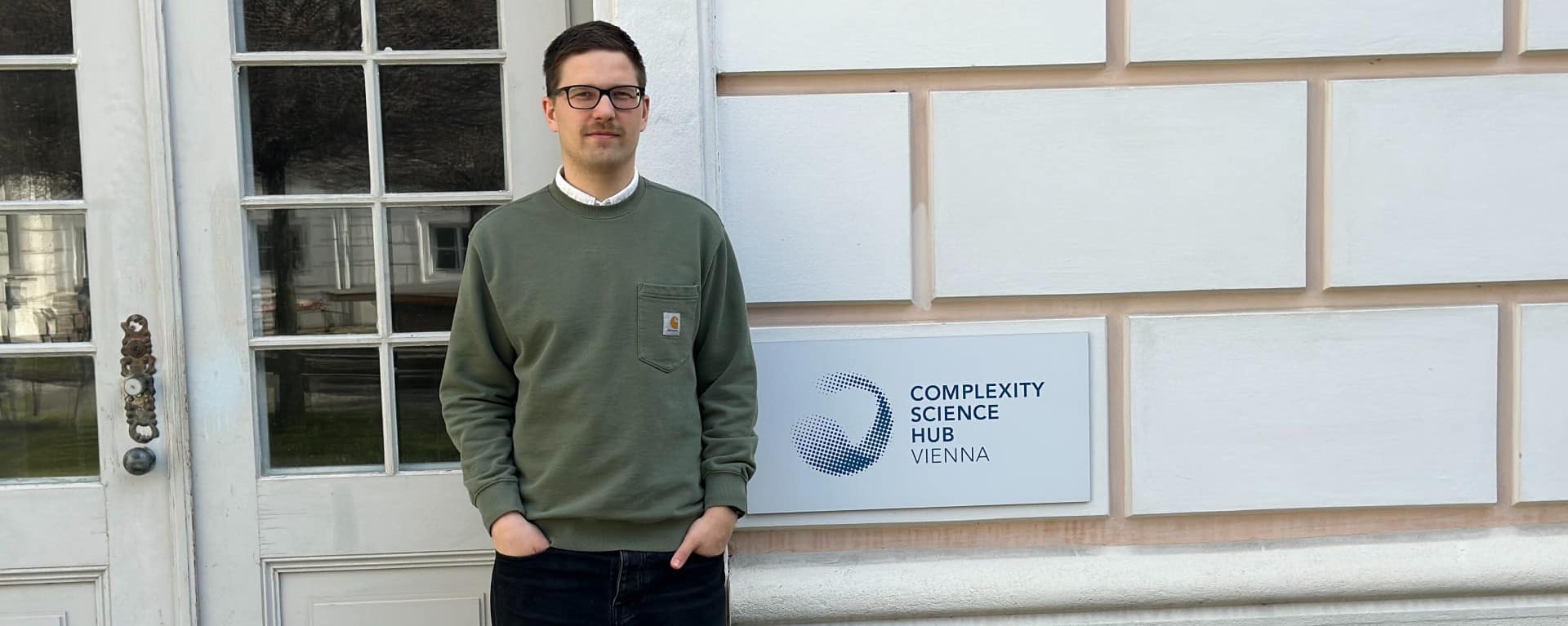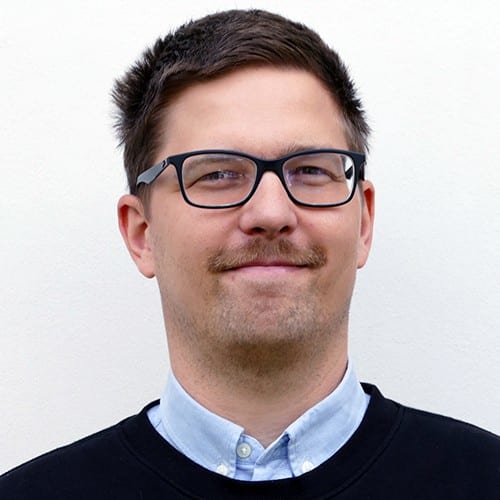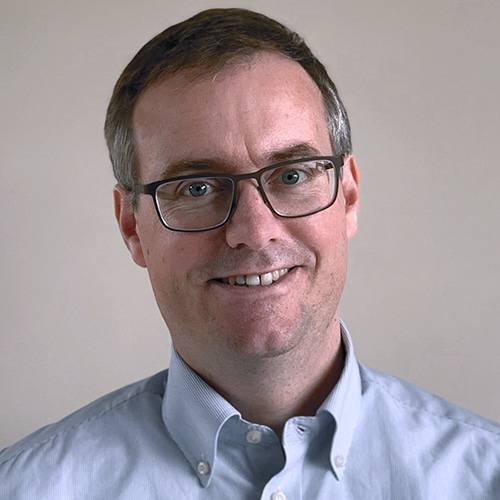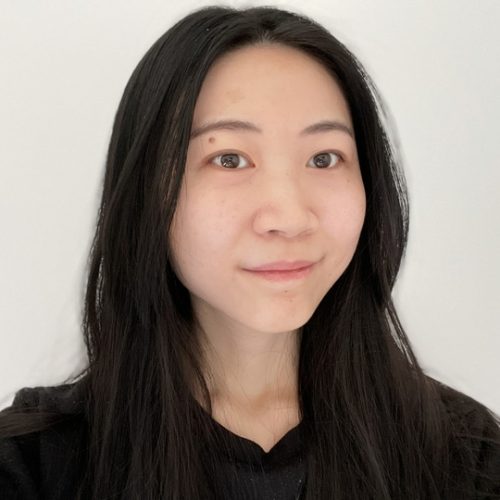Sándor Juhász is the first Marie Sklodowska Curie postdoctoral fellow at the Complexity Science Hub (CSH). In the next 20 months, Juhász will be delving into tax data. His goal is to find new ways of supporting local economic development.
You define yourself as “an economist interested in data magic, networks, innovation and (economic) geography.” Is it possible to perform magic with data?
Of course. Raw data files are messy and sometimes even unstructured. If you can turn it into very attractive and easy-to-understand figures at the end, the message is delivered quickly. To be able to do this with a single figure? I think this is magic.
Can you tell me what magic tricks you are going to perform at CSH?
Until now, value-added tax (VAT) information [a general tax that, in principle, is applied to all goods and services] has been used to study, for instance, economic shock propagation and supply chain resilience at the national level. However, few people have used this data for testing classic economic geographic topics or supporting local economic development policies.
I will focus on the geographical aspect of VAT networks during my stay. It is my aim to use tax data to develop tools or services where people can understand how a particular industry in a particular region depends on other industries and regions in the country, for example. It could be used to monitor the local economic environment and connections. By understanding the economic connections better, I hope we can turn this data into a tool that can support local economic development strategies.
What made you choose CSH as your host institution for the fellowship?
The main reason is that my entire project revolves around Hungarian VAT data. And I believe CSH has a good know-how about the supply chain economy and how VAT data can be transferred into meaningful projects.
My supervisor, Frank Neffke, was another factor that drew me to CSH. We work on similar projects and he is the kind of mentor a Marie Curie fellow needs: an experienced senior researcher. Having the opportunity to work in Vienna, which is close to my hometown of Budapest, was also a plus.
While at CSH, what are your plans?
I plan to write two research papers during the project. In addition, I plan to create an intuitive visualization site where people can check, for instance, the connections of an industry in a specific city in Hungary. This will enable them to find out who are its main suppliers and buyers. For that, I believe that CSH is the right place to be. I am looking forward to collaborating with Liuhuaying Yang and others and learning about data visualization practices. My goal is to learn as much as I can during my stay.
This visualization site could be especially useful for policymakers, as it intends to provide an overview of the local structure of the economy. It will show how flows occur across the country, and across industries. It will give a new geographic perspective on the economy, in my opinion.
Any other magic tricks?
I am interested in two main areas of research. One is socio-economic networks, i.e. supply chains and the economic interactions between agents. The other is urban data science, namely how people move around a city and how locations are organized in cities.
My future plan is to combine both areas and conduct very fine grain, city level studies that incorporate social interactions as well. I find that challenging, but also fun!
Would you mind giving me an example?
I am interested in studying how industries collocate in regions. We believe that they collocate in a specific region because certain channels, like input-output resources and skilled labor, or accumulated knowledge, are present there. Therefore we assume industries collocate there because they get to use the pool of resources and this reinforces spatial concentration. In the future, I would like to examine whether similar channels and reasons are important for certain shops, amenities, services, or firms to collocate inside urban neighborhoods. I am very interested in understanding how things are located at the micro level inside cities.



